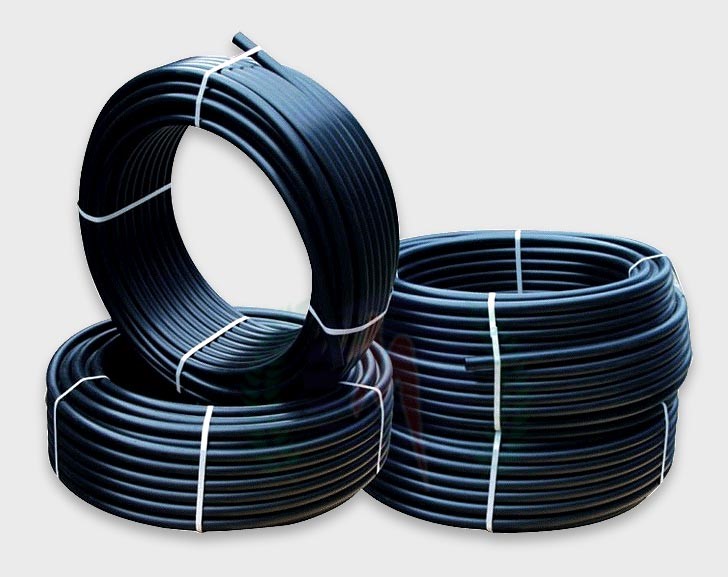Why Texas hdpe pipe manufacturer Is Leading in Modern Infrastructure
Wiki Article
Recognizing the Secret Perks of HDPE Pipe for Water and Wastewater Management
Making use of HDPE pipeline in water and wastewater monitoring offers countless benefits that merit consideration. Its phenomenal resilience and long life-span make it a recommended selection for numerous projects. In addition, the product's resistance to deterioration and chemical damage enhances its integrity in different environments. The advantages prolong past simply longevity and resistance. Pipe Manufacturing Midland TX. Discovering its cost-effectiveness and environmental influence exposes a lot more engaging reasons for its prevalent fostering in contemporary infrastructureExtraordinary Toughness and Durability

HDPE pipeline stands out for its outstanding resilience and durability, making it a favored selection in water management systems. Constructed from high-density polyethylene, these pipes can stand up to substantial stress and stress, making sure trusted performance over time. Their robust nature enables them to sustain severe ecological conditions, including temperature fluctuations and soil motions, which can trigger various other products to fall short.
The lifespan of HDPE pipes commonly exceeds 50 years, giving an affordable solution for towns and sectors alike. Additionally, the material's light-weight residential or commercial properties streamline installment, decreasing labor prices and durations. This resilience lessens the need for frequent repair services or substitutes, even more boosting its economic appeal.
In water administration applications, the dependability of HDPE pipelines means fewer disturbances and boosted solution connection, making them indispensable to lasting framework development. The combination of toughness and longevity strengthens HDPE's role as a foundation in reliable water management solutions.

Resistance to Rust and Chemical Damages
While lots of materials catch corrosion and chemical damages over time, HDPE pipelines show amazing resistance, making them ideal for different water monitoring applications. This durability stems from the molecular framework of high-density polyethylene, which is naturally non-reactive and does not rust like metals or weaken from direct exposure to extreme chemicals. Consequently, HDPE is highly efficient in settings with aggressive compounds, such as wastewater systems that might include acids, bases, and organic solvents.
In addition, HDPE pipelines can endure environmental variables such as dirt acidity and saline conditions, even more improving their viability for varied applications (American Plastics HDPE Pipe for Oilfield). Their capacity to keep architectural honesty with time lowers the threat of leakages and failings, which is vital in ensuring the security and reliability of water circulation and wastewater administration systems. The resistance to deterioration and chemical damages significantly adds to the total effectiveness and durability of HDPE piping options.
Cost-Effectiveness and Economic Advantages
When taking into consideration the financial ramifications of water administration systems, the cost-effectiveness of HDPE pipes becomes obvious. These pipes offer reduced setup and upkeep costs contrasted to conventional products like steel or concrete. Their light-weight nature simplifies transport and setup, causing minimized labor expenses. Furthermore, HDPE pipelines display a long lifespan, usually exceeding half a century, which equates to fewer replacements and lasting cost savings.In addition, the resistance of HDPE to deterioration and chemical damages lessens the need for pricey repairs and substitutes. The pipelines additionally support effective water circulation, minimizing energy prices connected with pumping systems. By reducing leaks and water loss, HDPE pipelines add to substantial economic his response benefits for communities and industries alike. Generally, the first financial investment in HDPE piping can yield considerable monetary returns over the life-span of the water monitoring system, making it a prudent choice for sustainable facilities advancement.
Ecological Sustainability and Reduced Impact

Convenience and Adaptability in Setup
Due to their distinct properties, HDPE pipes offer impressive versatility and adaptability in setup, making them suitable for a vast array of applications. Their light-weight nature permits easier handling and transportation, minimizing labor expenses and installment time. HDPE pipelines can be curved and formed to fit different surfaces and project needs, which is particularly valuable in testing environments.Additionally, their resistance to corrosion and chemical damages permits installation in diverse setups without helpful hints the requirement for specialized protective layers. The capability to fuse joints develops a continual, leak-free system, boosting the overall integrity and dependability of the installation. HDPE's versatility also fits ground activity, reducing the threat of damage in areas prone to changing soil. In general, these features make HDPE pipelines not just versatile however additionally a preferred choice for water and wastewater administration systems.
Often Asked Questions
Just How Does HDPE Pipeline Contrast to PVC in Water Monitoring Applications?
HDPE pipe provides exceptional adaptability, resistance to corrosion, and sturdiness contrasted to PVC. Its lighter weight facilitates easier setup, while its long life-span minimizes replacement costs, making HDPE a favored option in water administration applications.What Is the Life Expectancy of HDPE Pipeline Under Typical Conditions?
Under common conditions, HDPE pipes can have a lifespan ranging from 50 to 100 years. Their longevity and resistance to rust add to their long-term performance in various applications, making them a reliable choice for infrastructure.Are HDPE Pipeline Recyclable After Their Life Span?
Yes, HDPE pipelines are recyclable after their life span. Texas hdpe pipe manufacturer. They can be processed and repurposed right into new items, considerably lowering ecological impact and promoting sustainability within the industry, making them a green selection for piping servicesWhat Is the Setup Process for HDPE Piping?
The installation process for HDPE pipes involves website preparation, trenching, pipe blend or mechanical signing up with, backfilling, and pressure screening. Correct techniques guarantee a sturdy and reliable system for transporting water and wastewater efficiently.Can HDPE Water Lines Be Made Use Of for Both Safe And Clean and Non-Potable Water Systems?
Yes, HDPE pipes can be utilized for both try here drinkable and non-potable water systems. Their flexibility, resilience, and resistance to corrosion make them suitable for different applications, ensuring risk-free and efficient transportation of water in various contexts.Report this wiki page